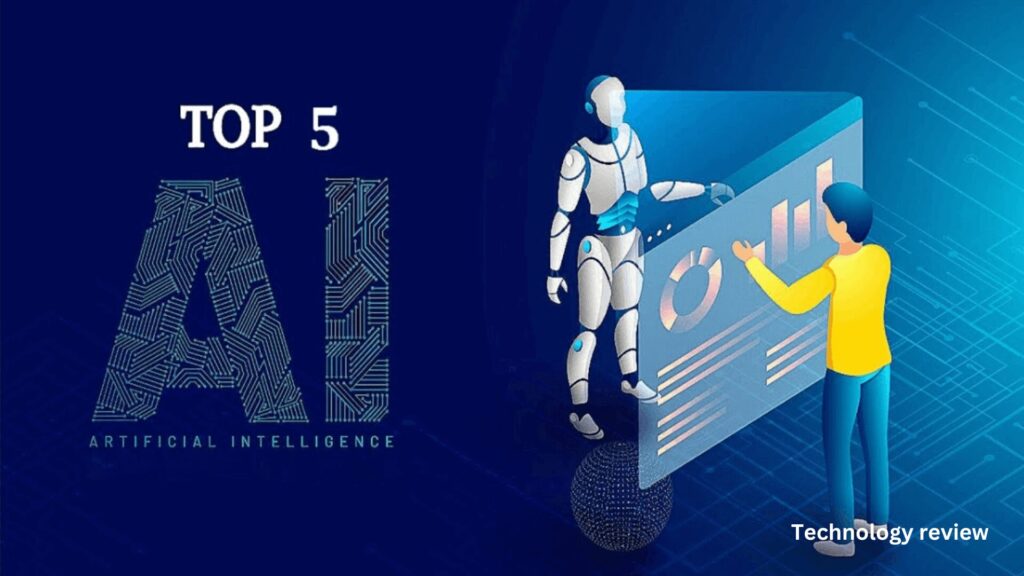5 importance of artificial intelligence
As you navigate the rapidly evolving technological landscape, artificial intelligence (Al) stands out as a transformative force shaping the world around you. This groundbreaking technology is no longer confined to science fiction; it has become an integral part of your daily life, often in ways you may not even realize. From enhancing decision-making processes to revolutionizing healthcare, Al’s impact is far-reaching and profound. In this article, you’ll explore five key areas where artificial intelligence is proving to be of paramount importance, shedding light on how this innovative technology is reshaping industries, improving efficiencies, and opening up new possibilities for human advancement.
Artificial Intelligence is Revolutionizing Many Industries
Artificial intelligence (AI) is rapidly transforming numerous sectors, showcasing the 5 importance of artificial intelligence in our modern world. From healthcare to finance, manufacturing to retail, Al’s impact is far-reaching and profound.
Healthcare Advancements
In the medical field, Al is revolutionizing diagnostics and treatment plans. Machine learning algorithms can analyze complex medical images with remarkable accuracy, often surpassing human capabilities. This technology assists doctors in detecting diseases earlier and developing more personalized treatment strategies.
Financial Services Innovation
The finance industry has embraced Al for fraud detection, risk assessment, and algorithmic trading. These applications enhance security, improve decision-making, and increase efficiency in financial markets. Al-powered chatbots are also transforming customer service in banking, providing 24/7 support and personalized financial advice.
Manufacturing Efficiency
In manufacturing, Al is optimizing production processes through predictive maintenance and quality control. Smart factories utilize Al to anticipate equipment failures, reduce downtime, and improve overall productivity. This integration of artificial intelligence in industrial settings is driving the fourth industrial revolution, often referred to as Industry 4.0.
By leveraging the power of Al across these diverse industries, businesses are experiencing increased efficiency, reduced costs, and improved customer satisfaction. The transformative potential of artificial intelligence continues to grow, promising even more innovative applications in the future.
Al Can Analyze Massive Amounts of Data
One of the 5 importance of artificial intelligence lies in its unparalleled ability to process and analyze vast quantities of data at lightning speed. This capability far surpasses human capacity, allowing for insights and patterns to be uncovered that would otherwise remain hidden.
Rapid Processing Power
Artificial intelligence systems can sift through terabytes of information in mere seconds, a task that would take humans months or even years to complete. This rapid analysis enables businesses and researchers to make data-driven decisions quickly and efficiently, staying ahead in today’s fast-paced world.
Pattern Recognition
Al excels at identifying complex patterns within large datasets. By leveraging machine learning algorithms, Al can detect subtle correlations and trends that might escape human notice. This ability is particularly valuable in fields such as medical research, financial forecasting, and climate modeling, where understanding intricate relationships is crucial.
Continuous Learning
Unlike traditional data analysis methods, Al systems can continuously learn and improve their analytical capabilities. As they process more data, these systems refine their algorithms, becoming increasingly accurate and insightful over time. This adaptive nature ensures that the value derived from data analysis grows exponentially, making artificial intelligence an indispensable tool in our data-driven era.
Al is Improving Healthcare and Medicine
Artificial intelligence is revolutionizing healthcare, demonstrating one of the key importance of artificial intelligence in modern medicine. By harnessing the power of machine learning and data analysis, Al is enhancing diagnosis, treatment, and patient care across various medical fields.
Enhancing Diagnostic Accuracy
Al algorithms can analyze medical images with remarkable precision, often outperforming human experts in detecting early signs of diseases like cancer or cardiovascular conditions. This improved accuracy leads to earlier interventions and better patient outcomes.
Personalized Treatment Plans
By processing vast amounts of patient data, Al can help physicians develop tailored treatment strategies. This personalized approach considers individual genetic profiles, lifestyle factors, and medical histories to optimize therapeutic effectiveness.
Streamlining Administrative Tasks
Al-powered systems are automating time-consuming administrative processes, allowing healthcare professionals to focus more on patient care. From scheduling appointments to managing electronic health records, these tools are improving operational efficiency in medical facilities.
Advancing Drug Discovery
The 5 importance of artificial intelligence in healthcare extends to pharmaceutical research. Al accelerates the drug discovery process by analyzing molecular structures and predicting potential drug candidates, significantly reducing the time and cost of bringing new treatments to market.
Al is Enhancing Transportation and Mobility
Artificial intelligence is revolutionizing the way we move from point A to point B, making transportation safer, more efficient, and increasingly autonomous. One of the 5 importance of artificial intelligence lies in its ability to transform our mobility landscape.
Autonomous Vehicles
Self-driving cars, powered by Al algorithms, are no longer just a sci-fi concept. These vehicles use complex sensor systems and machine learning to navigate roads, interpret traffic signals, and avoid obstacles. As this technology matures, we can expect fewer accidents, reduced traffic congestion, and increased accessibility for those unable to drive.
Smart Traffic Management
Al is also optimizing traffic flow in urban areas. Intelligent traffic light systems adjust in real-time based on current road conditions, reducing wait times and emissions. Additionally, Al-powered route optimization helps delivery companies and public transit systems operate more efficiently.
Predictive Maintenance
Another crucial application of artificial intelligence in transportation is predictive maintenance. Al algorithms analyze data from sensors on vehicles and infrastructure to forecast when maintenance is needed, preventing breakdowns and extending the lifespan of transportation assets.
By harnessing the power of Al, we’re not just improving our daily commutes; we’re paving the way for a more sustainable and accessible future of mobility.
The Possibilities of Al are Endless
The 5 importance of artificial intelligence cannot be overstated, as its potential applications seem limitless. As we delve deeper into the realm of Al, we’re continually discovering new ways it can revolutionize our world.
Transforming Industries
Artificial intelligence is reshaping entire sectors, from healthcare to finance. In medicine, Al algorithms can analyze medical images with unprecedented accuracy, potentially detecting diseases earlier than human doctors. In finance, Al-powered systems can make split-second trading decisions, optimizing investments and managing risk more effectively than ever before.
Enhancing Daily Life
From smart homes to virtual assistants, Al is already making our lives more convenient. Imagine a future where Al anticipates your needs, adjusting your home’s temperature before you arrive or suggesting the perfect recipe based on the ingredients in your fridge. The possibilities for Al to streamline our daily routines are truly exciting.
Solving Global Challenges
Perhaps most importantly, artificial intelligence holds the potential to address some of humanity’s most pressing issues. From climate change modeling to optimizing resource distribution, Al could play a crucial role in creating a more sustainable and equitable world. As we continue to explore and develop Al technologies, we may find solutions to problems we once thought insurmountable.



